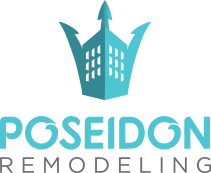Understanding is a Home Improvement Loans Tax Deductible?
Embarking on home improvement projects can be both exciting and financially daunting. Whether you’re renovating your kitchen, adding a new bathroom, or installing solar panels, the costs can add up quickly. For many homeowners, securing a home improvement loan is a practical way to finance these projects. However, one common question that arises is whether the interest paid on these loans is tax deductible.
A Brief Overview on is a Home Improvement Loans Tax Deductible

Home improvement loans come in various forms, including personal loans, home equity loans, and home equity lines of credit (HELOCs). Each type of loan has its terms, interest rates, and repayment schedules.
- Personal Loans: These are unsecured loans that you can obtain from banks, credit unions, or online lenders. They typically have fixed interest rates and fixed repayment terms.
- Home Equity Loans: These loans allow you to borrow against the equity you’ve built in your home. They usually have fixed interest rates and fixed monthly payments over a predetermined period.
- Home Equity Lines of Credit (HELOCs): A HELOC is a revolving line of credit that allows you to borrow against the equity in your home. Similar to a credit card, you can borrow up to a certain limit and repay the borrowed amount over time. HELOCs often have variable interest rates.
Tax Deductibility of Home Improvement Loan Interest
The tax deductibility of interest paid on home improvement loans depends on several factors, including the purpose of the loan and the tax laws in your jurisdiction. Here’s a breakdown:
- Primary Residence: In many cases, interest paid on loans used to improve your primary residence may be tax deductible. The Internal Revenue Service (IRS) allows you to deduct mortgage interest on loans used to “buy, build, or substantially improve” your primary residence, subject to certain limitations.
- Home Equity Indebtedness: Prior to the Tax Cuts and Jobs Act (TCJA) of 2017, homeowners could deduct interest on home equity loans and HELOCs regardless of how the proceeds were used. However, the TCJA introduced changes that affect the deductibility of home equity indebtedness interest.
- Post-TCJA Regulations: Under current tax laws (as of the last update in 2022), interest on home equity loans and HELOCs is only tax deductible if the proceeds are used to “buy, build, or substantially improve” the taxpayer’s home that secures the loan. If the funds are used for other purposes, such as debt consolidation or personal expenses, the interest may not be deductible.
Key Considerations and Limitations
It’s essential to understand the specific tax laws and regulations applicable to your situation. Here are some additional considerations regarding the tax deductibility of home improvement loan interest:
- Loan Limits: The IRS imposes limits on the amount of mortgage debt eligible for interest deduction. As of 2022, the limit is $750,000 for married couples filing jointly ($375,000 for married couples filing separately) on mortgage loans used to acquire, build, or substantially improve a primary residence.
- Documentation: Proper documentation is crucial when claiming deductions on home improvement loan interest. Keep records of loan documents, receipts, and invoices to substantiate the purpose of the loan and the improvements made to your home.
- Consultation with Tax Professionals: Tax laws are subject to change, and individual circumstances vary. Consulting with a qualified tax professional or accountant can provide personalized guidance on tax deductibility and help maximize your tax benefits.
Final Thoughts
Home improvement projects can enhance your living space, increase property value, and potentially yield tax benefits through the deductibility of loan interest. However, navigating the complexities of tax laws and regulations requires careful consideration and planning.
Before obtaining a home improvement loan, it’s advisable to research the tax implications and consult with financial and tax professionals to ensure compliance and optimize your financial strategy. By staying informed and making informed decisions, you can make the most of your home improvement endeavors while managing your tax obligations effectively.
Our Services
Recent Posts

Elevating Lifestyle: Luxury Home Remodeling for the Discerning Homeowner Luxury…

Best Home Remodeling Company of 2024 In the realm of…

Bathroom Remodeling Ideas That Add Value to Your Home in…

Understanding is a Home Improvement Loans Tax Deductible? Embarking on…


